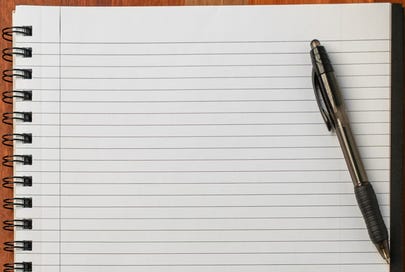Elizabeth was poor, but I was too blind to see it until it stung my eyes like vinegar.
In seventh grade, I attended all my classes with her, a girl from another elementary school who, like me, had been tossed into the choppy waters of middle school.
She wore colorful homemade clothes.
She was shy and often spoke in a whisper.
She was kind.
She was also wicked smart, and I do mean wicked. Academics came easily to her. She dominated scholastic competitions all the way to the national level. She and I competed together on the math team and were always friendly. She had read more books than anyone I knew – and she continued to read profusely during the school year, always with a second book handy if needed. Between classes, at lunch – she filled every spare moment with words. Six years later, she attended Princeton for free.
We sat next to each other in English class, which is when I first noticed. She used every centimeter of notebook paper as if it were laced with gold – if only it had been. Her fit-on-the-head-of-a-pin handwriting stretched from the left to the right edge of the page and wove around the three punched holes. When we learned to diagram sentences, which took up space, she wrote nothing down. I assumed she remembered everything. She turned in each homework assignment on cleanly cut paper no longer than the extent of her answers. Three-fourths, one-half, one-third of a page – as short as possible.
I never asked why. It seemed unusual, but not a curiosity. In any event, it was none of my business.
I was raking leaves one autumn weekend when it struck me. Saving every bit of white space and paper. Meticulous handwriting that required a microscope. Homemade clothes. Handing in truncated homework assignments.
It was then that I understood that her family was poor enough to conserve everything. It was then that I asked myself how I hadn’t connected the dots. It was then that I wished I could make things better for her.
Three years later, we moved to another state where I attended high school.
In the interim, I always thought she had a glow about her that I couldn’t understand.
If you enjoyed reading this post, the best way to support this newsletter is to SUBSCRIBE (it’s free) and then RECOMMEND it to your readers when prompted by Substack. Thank you.
I appreciate your support. You may always reach me here.
Want to read some more? Enjoy one of these recent posts:
How I Barely Survived My First (12) Days on Substack
Creating When Words Confound You






She and I are in touch. She is doing exactly what she wanted to do when we are kids. To the letter. I would say that she has definitely fulfilled that promise, and she’s a really good person. Thank you for asking.
It’s past time we understand that each of us is born into a unique place, unaware until we’re old enough to learn and understand others who may be standing right next to us.
It’s our job to learn, but until we do it’s not their fault or ours. The price of admission is to try.